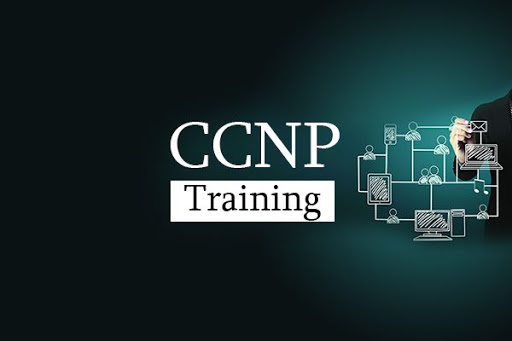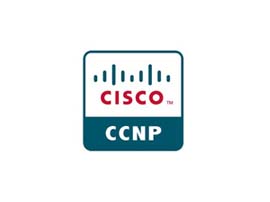CCNP
TASC Management training programs are designed to engage students in various aspects of enterprise level initiatives and to familiarize them with the interactions of networking, administration, programming and development.
Cisco Certified Network Professional (CCNP)
TASC Management training programs are designed to engage students in various aspects of enterprise level initiatives and to familiarize them with the interactions of networking, administration, programming and development.
The components of the training program include:
• Instructor-led
• 8 hours a day or 2 days/per week instruction for a duration of 10 weeks
• Class Hours: 9 am to 5 pm
TBD
Check back often for updates or send us an email at [email protected] so we can notify you of upcoming courses.
To attend this course, the prospective student must have completed their CCNA certification or has received the equivalent training and have basic knowledge of data networking equivalent to knowledge required to pass CompTIA’s Network+ exam. Limited knowledge of routing protocols (both link-state and distance vector) is a plus. With a CCNP certification, a network professional can install, configure, operate LAN, WAN, and dial access services for organizations.
• Network engineers, support staff, and administrators with knowledge of Cisco products but have limited knowledge of dial on demand routing (DDR), queuing, or network address translation (NAT)
• Network support staff needing to support DDR, queuing , or NAT
• CCNP, CCDA, CCDP and CCIE Candidates
The CCNP candidate must have a valid CCNA Certification. Familiarity with inter-networking technologies and the ability to perform basic configuration of Cisco routers. Knowledge of IP, including the ability to perform IP subletting on non-octal boundaries, to configure IP standard and extended access lists, distance vector routing protocol operation, and configuration, and serial interface configuration, and to interpret a Cisco routing table.
• Network engineers, support staff, and administrators with knowledge of Cisco products but have limited knowledge of dial on-demand routing (DDR), queuing, or network address translation (NAT)
• Network support staff needing to support DDR, queuing, or NAT
• CCNP, CCDA, CCDP and CCIE Candidates
Each CCNP certification requires only Two exams: One Core Exam and One Concentration exam of your choice, so you can focus on your interests and needs. And core exams in each technology track also serve as qualifying exams for CCIE lab exams.
Cisco Certified DevNet Professional:
Achieving a Cisco Certified DevNet Professional certification proves that you are competent in developing and maintaining applications built on Cisco platforms. The core exam focuses on knowledge of software development and design including using APIs, Cisco platforms, application deployment and security, and infrastructure and automation. Concentration exams focus on topics such as data center automation, security automation, DevOps automation, IoT, and cloud
Core Exam: 350-901 DEVCOR
Concentration Exam: (Choose 1):
- 300-435 ENAUTO
- 300-835 CLAUTO
- 300 -635 DCAUTO
- 300 -535 SPAUTO
- 300 -535 SAUTO
- 300 -910 DEVOPS
- 300 -920 DEVWBX
NOTE: If you pass the 300-435 exam, this will count towards both the CCNP Enterprise and DevNet Professional certification.
CCNP Enterprise:
Achieving a CCNP Enterprise certification proves your skills with solutions for corporate networks. What was formerly CCNP Routing and Switching is now CCNP Enterprise. The core exam focuses on topics such as dual-stack (IPv4 and IPv6) architecture, virtualization, infrastructure, network assurance, security, and automation, according to Cisco. Concentration exams focus on topics such as network design, SD-WAN, wireless, and automation.
Core Exam: 350-401 ENCOR
Concentration Exam: (Choose 1):
- 300-435 ENARSI
- 300-415 ENSDWI
- 300 -420 ENSLD
- 300 -425 ENWLD
- 300-430 ENWLSI
NOTE: If you take the 300-435 exam, this also counts for the DevNet Professional exam.
CCNP Collaboration:
Achieving a CCNP Collaboration certification proves your skills with Cisco’s Collaboration solutions. The core exam focuses on knowledge of collaboration infrastructure. The collaboration concentration exams cover topics such as implementing Cisco collaboration applications and deploying automation for Cisco collaboration solutions.
Core Exam: 350-801 CLOR
Concentration Exam: (Choose 1):
- 300-810 CLICA
- 300 -815 CLACCM
- 300-820 CLCEI
- 300-835 CLAUTO
CCNP Security:
Obtaining a CCNP Security certification proves your skills with Cisco’s Security solutions. The core exam focuses on knowledge of security infrastructure. The security concentration exams cover topics such as securing networks with Cisco’s firewall products, implementing and configuring Cisco’s identity services engine, and securing email with Cisco’s email security appliance.
Core Exam: 350-701 SCOR
Concentration Exam: (Choose 1):
- 300 -710 SNCF
- 300 -715 SISE
- 300 -720 SESA
- 300- 725 SWSA
- 300-730 SVPN
CCNP Data Center:
Obtaining a CCNP Data Center certification proves your skills with Cisco’s Data Center solutions. The core exam focuses on skills associated with implementing core data center technologies, including network, compute, storage network, automation, and security. The concentration exams tackle designing, configuring, implementing, and troubleshooting Cisco hardware and infrastructure.
Core Exam: 350-601 DCCOR
Concentration Exam: (Choose 1):
- 300-610 DCID
- 300 -615 DCIT
- 300 -620 DCACI
- 300 -625 DCSAN
- 300 – 635 DCAUTO
CCNP Service Provider:
Achieving CCNP Service Provider certification proves your skills in Service Provider solutions. The core exam focuses on knowledge of service provider infrastructure. Concentration exams focus on topics such as advanced routing, VPN services, and automation.
Core Exam: 350- 501 SPCOR
Concentration Exam: (Choose 1):
- 300-510 SPRI
- 300 -515 SPVI
- 300 -535 SPAUTO
In this course, students will learn how to create an efficient and expandable enterprise network by installing, configuring, monitoring, and troubleshooting network infrastructure equipment (especially routers such as Cisco ISRs) according to the Campus Infrastructure module in the Enterprise Composite Network model.
The routed network includes the most commonly used and emerging IP routing protocols.
|
Exam |
Description |
Course |
|
350-901 |
DEVCOR(Cisco Certified DevNet Professional) |
Cisco Certified DevNet Professional:
Achieving a Cisco Certified DevNet Professional certification proves that you are competent in developing and maintaining applications built on Cisco platforms. The core exam focuses on knowledge of software development and design including using APIs, Cisco platforms, application deployment and security, and infrastructure and automation. Concentration exams focus on topics such as data center automation, security automation, DevOps automation, IoT, and cloud. NOTE: If you pass the 300-435 exam, this will count towards both the CCNP Enterprise and DevNet Professional certification |
|
350-401 |
CCNP Enterprise |
CCNP Enterprise:
Achieving a CCNP Enterprise certification proves your skills with solutions for corporate networks. What was formerly CCNP Routing and Switching is now CCNP Enterprise. The core exam focuses on topics such as dual-stack (IPv4 and IPv6) architecture, virtualization, infrastructure, network assurance, security, and automation, according to Cisco. Concentration exams focus on topics such as network design, SD-WAN, wireless, and automation. NOTE: If you take the 300-435 exam, this also counts for the DevNet Professional exam. |
|
350-801 |
CCNP Collaboration |
CCNP Collaboration:
Achieving a CCNP Collaboration certification proves your skills with Cisco’s Collaboration solutions. The core exam focuses on knowledge of collaboration infrastructure. The collaboration concentration exams cover topics such as implementing Cisco collaboration applications and deploying automation for Cisco collaboration solutions. |
|
350-701 |
CCNP Security |
CCNP Security:
Obtaining a CCNP Security certification proves your skills with Cisco’s Security solutions. The core exam focuses on knowledge of security infrastructure. The security concentration exams cover topics such as securing networks with Cisco’s firewall products, implementing and configuring Cisco’s identity services engine, and securing email with Cisco’s email security appliance. |
|
350-601 |
CCNP Data Center |
CCNP Data Center:
Obtaining a CCNP Data Center certification proves your skills with Cisco’s Data Center solutions. The core exam focuses on skills associated with implementing core data center technologies, including network, compute, storage network, automation and security. The concentration exams tackle designing, configuring, implementing and troubleshooting Cisco hardware and infrastructure. |
|
350- 501 |
CCNP Service Provider |
CCNP Service Provider:
Achieving CCNP Service Provider certification proves your skills in Service Provider solutions. The core exam focuses on knowledge of service provider infrastructure. Concentration exams focus on topics such as advanced routing, VPN services, and automation. |


